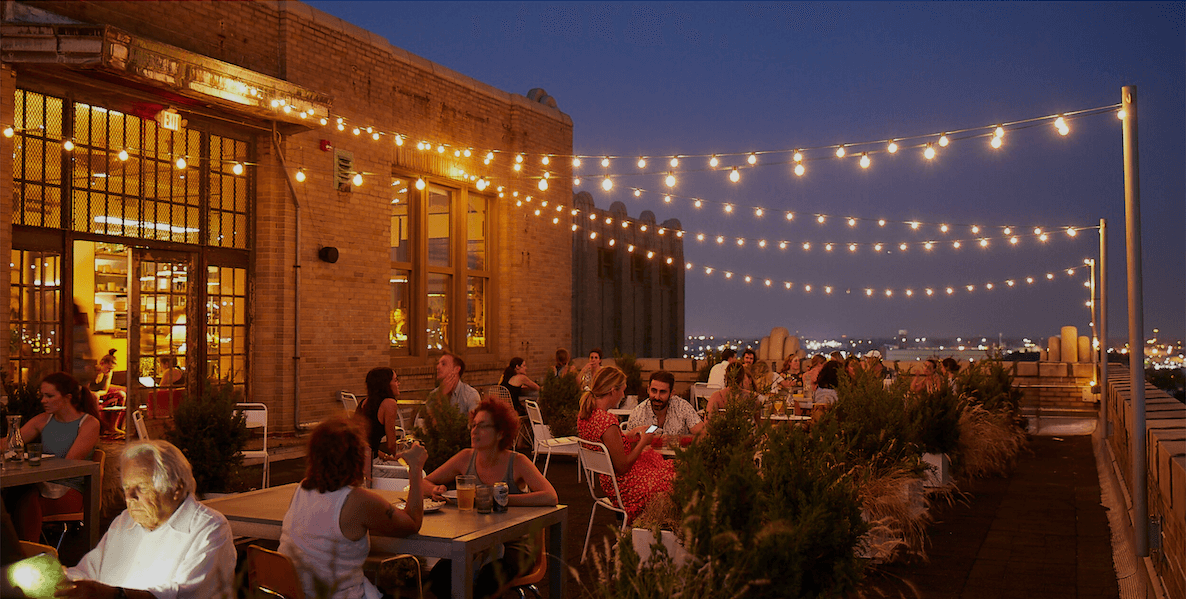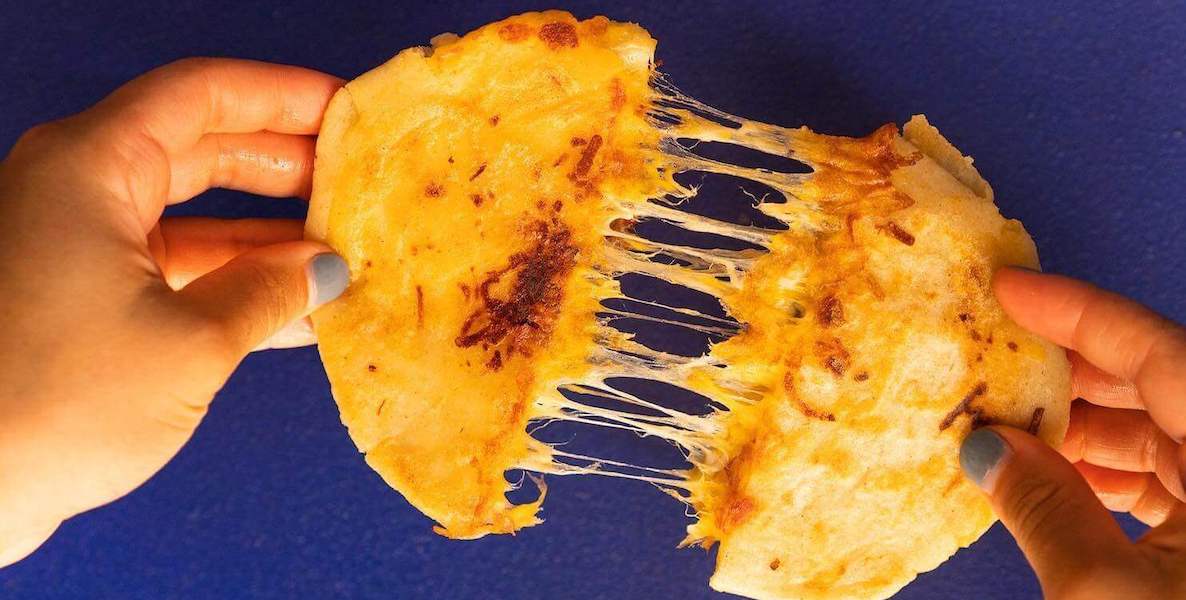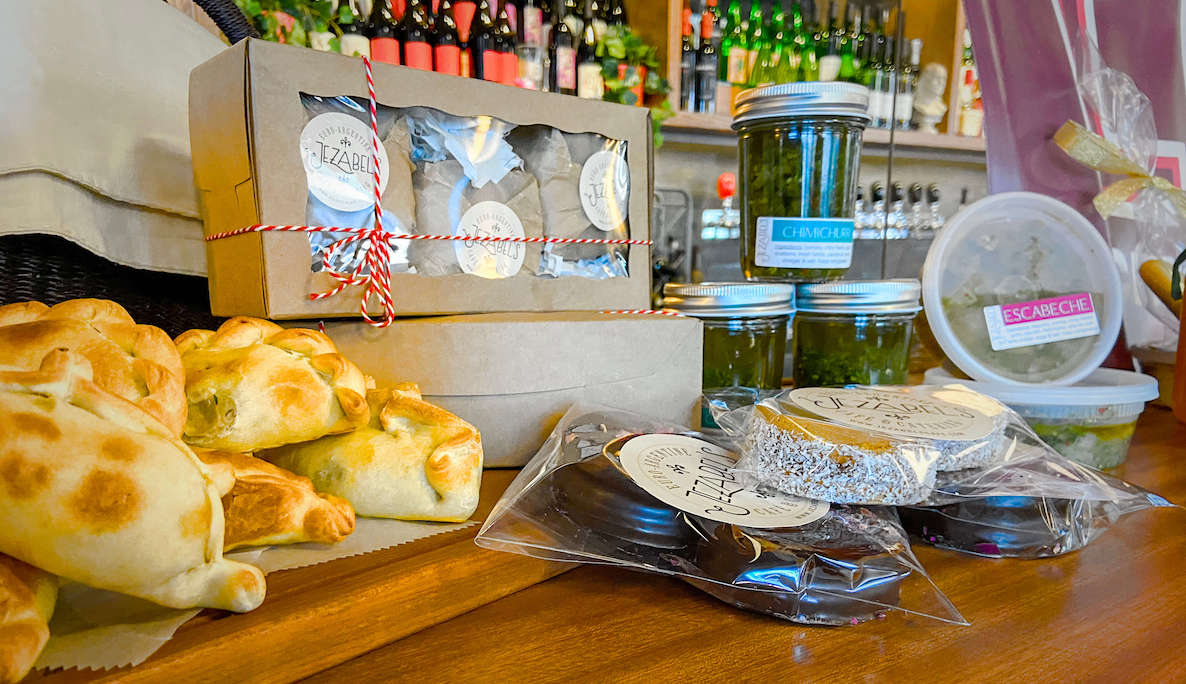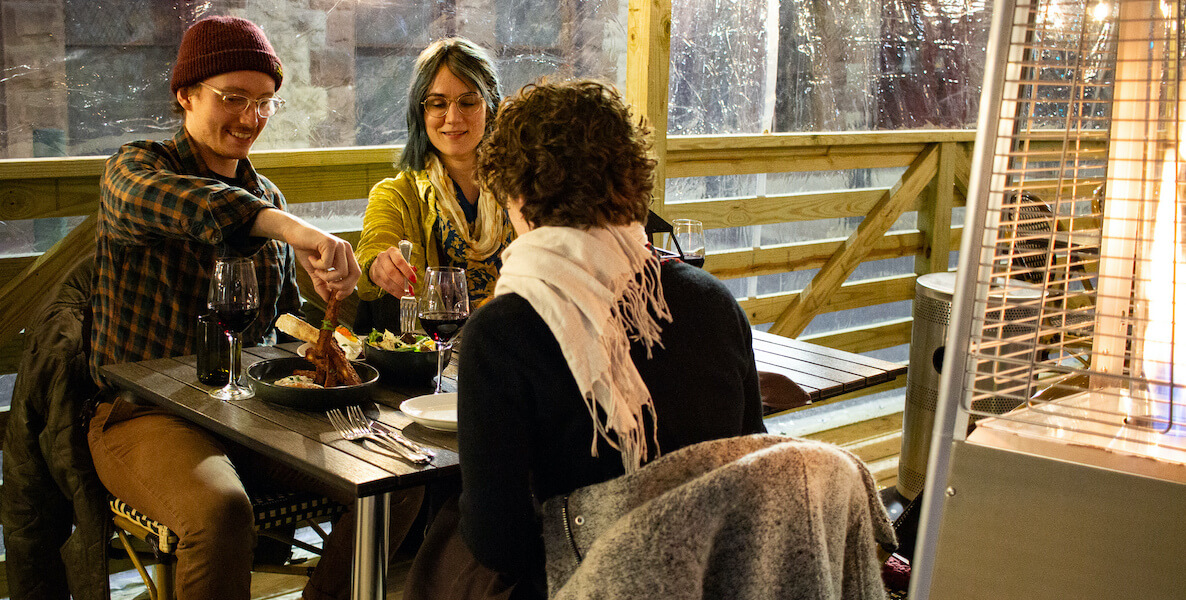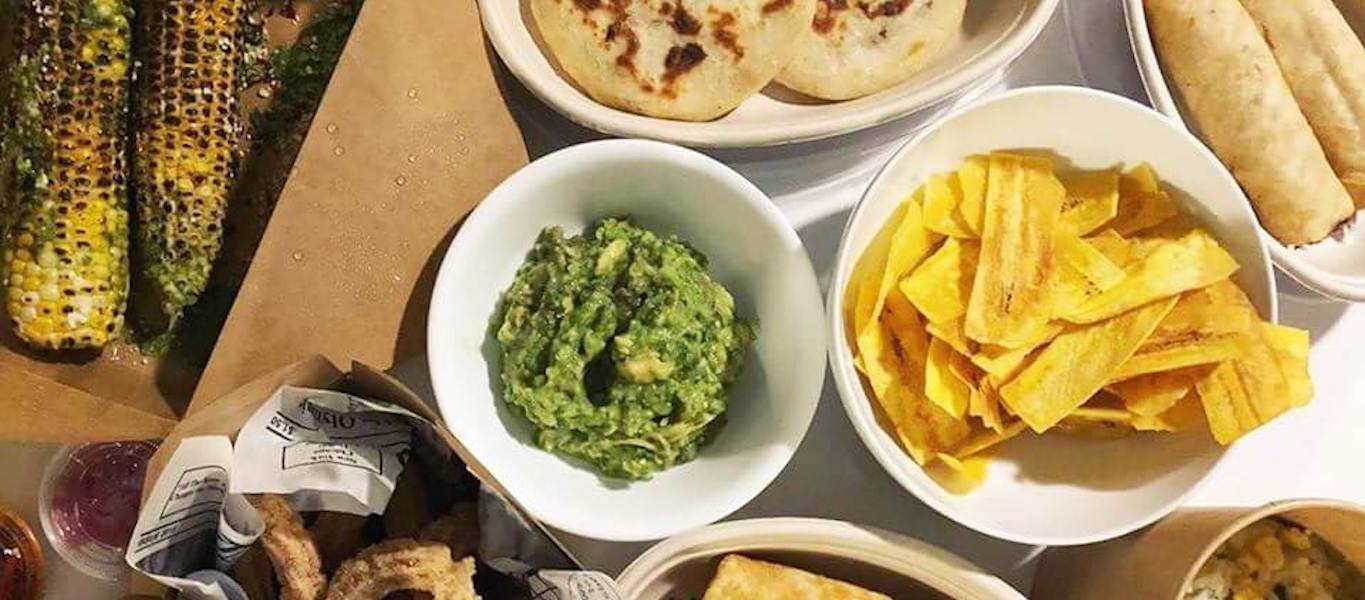![]() It’s a sad fact: The pandemic has rendered beloved dining rooms and bars across the city as high-rent storage facilities and staging areas for takeout orders.
It’s a sad fact: The pandemic has rendered beloved dining rooms and bars across the city as high-rent storage facilities and staging areas for takeout orders.
And we are dearly missing those “third spaces” where we could gather together, unwind, connect with our communities—places like Jezabel’s Argentine Bakery & BYO. Pre-pandemic, it was a spot you could settle in, unrushed, to catch up with a friend, or watch the eclectic mix of Penn kids, academics and neighborhood folks cycle through to caffeinate.
The empanadas they’re known for were best ordered to share, as a tabla criolla: eight mix-and-match baked empanadas with fillings like carne, pollo, vegan lentil, and corn and cheese (the fugazza—leek, onion and mozzarella cheese—is the sleeper hit) served with a smattering of pickled vegetables and sauces.
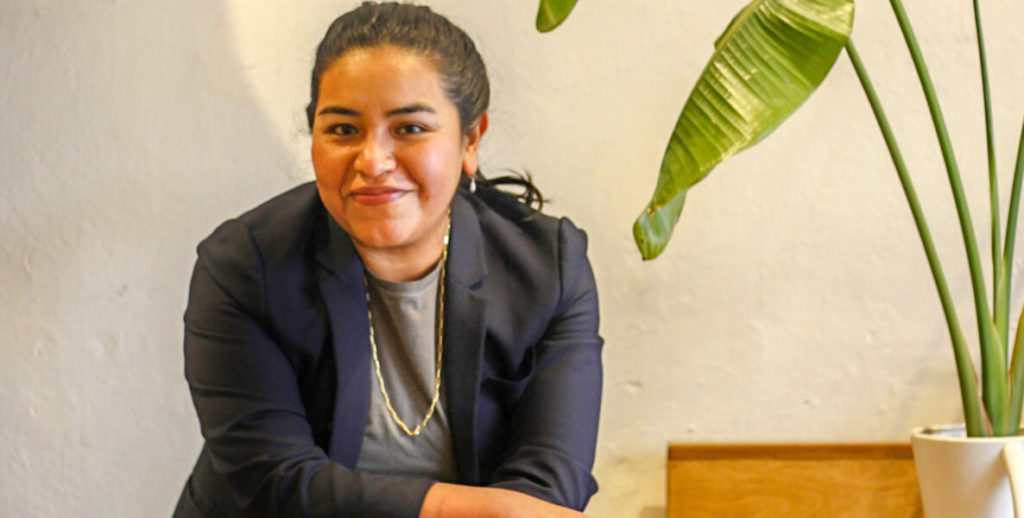
The pastries, like alfajores—dulce de leche sandwich cookies plain or dipped in chocolate and garnished with rose petals—with a cup of maté made the perfect afternoon pick-me-up.
A year before the pandemic hit, Jezabel’s moved from Fitler Square to two storefronts in West Philadelphia in 2019. They expanded the menu—serving breakfast and lunch by day, and hosting special dinners and pop-up events by night. Owner Jezabel Careaga, an accomplished woodworker in addition to a restaurateur, built the furniture for the new dining room (she sells cutting boards and other home goods in an attached atelier).
But of course, this warm and carefully crafted space hasn’t been enjoyed by customers since mid-March—which means the business has had to make massive changes to survive.
Even with the January 16, 2021 return of indoor dining at 25 percent capacity, #ClosedinPHL, the heartbreaking project of food writer and restaurant lover Arthur Etchells, documents over 200 Philly restaurants temporarily or permanently closed. According to the Pennsylvania Restaurant and Lodging Association, sales statewide in fall 2020 were down 41 percent from the previous year.
While all restaurateurs are struggling to do business in a pandemic, Careaga sees opportunity to take their brands to new areas that may thrive long after the “streateries” are dismantled back into parking spots, and ordering a fancy multi-course Valentine’s Day dinner on a delivery app becomes just a memory of the bizarre things we did to preserve a sense of normalcy in 2021.
She’s doing more than rolling with it—she’s seizing the opportunity in adversity to make moves for her business that will be beneficial for the long road.
“Some chefs want to go back to normal, but I’m sorry to tell you, buddy, there’s no normal,” she says. “Serving people at a table for me is going to be the luxury; it’s going to be the cherry on top of my cake. That’s the way that we’re going to treat dine-in experiences going forward.”
Addressing the pandemic with a strategic pivot
Careaga grew up in Palpalá, northwestern Argentina and has formal education in hospitality management as well as an MBA. In Argentina, she developed a business plan for a restaurant that would reflect her Argentinian cuisine, not the steak and red wine of the stereotypical Argentine restaurants abroad, but an updated interpretation of the pastries, empanadas and homey dishes she grew up cooking with her grandmother.
She moved to the U.S. in 2007 with dreams of opening her restaurant, bringing her vision to life with the opening of Jezabel’s Café in Fitler Square in 2010.
Early in the pandemic, Careaga did what many restaurateurs did—watched and worried. She made incremental changes to grow sales: She started a delivery program, cleaned up her website to streamline online ordering, and applied for a permit to convert parking spots to an outdoor dining space. Surviving but not thriving.
As restrictions lingered, rather than bemoan what’s been lost, she has continued to address the ever-changing circumstances with creativity. She’s not advocating for looser restrictions on restaurants or a quick path to full reopening, as she worries that could prolong the pandemic. And she’s too busy looking to the future to worry about returning to the pre-pandemic “normal.”
“How do I have the restaurant of the future where the people that work with me are well paid, where they can have a 401(k), where they can have benefits?” Careaga asks. “That’s not going to happen by running restaurants as everybody’s [been] running them.”
To support a sustainable workforce now, and into the future, Careaga is flipping the traditional restaurant model, selling takeout, but also prepared foods like soups and ingredients like fresh pasta, sauces, and empanada kits.
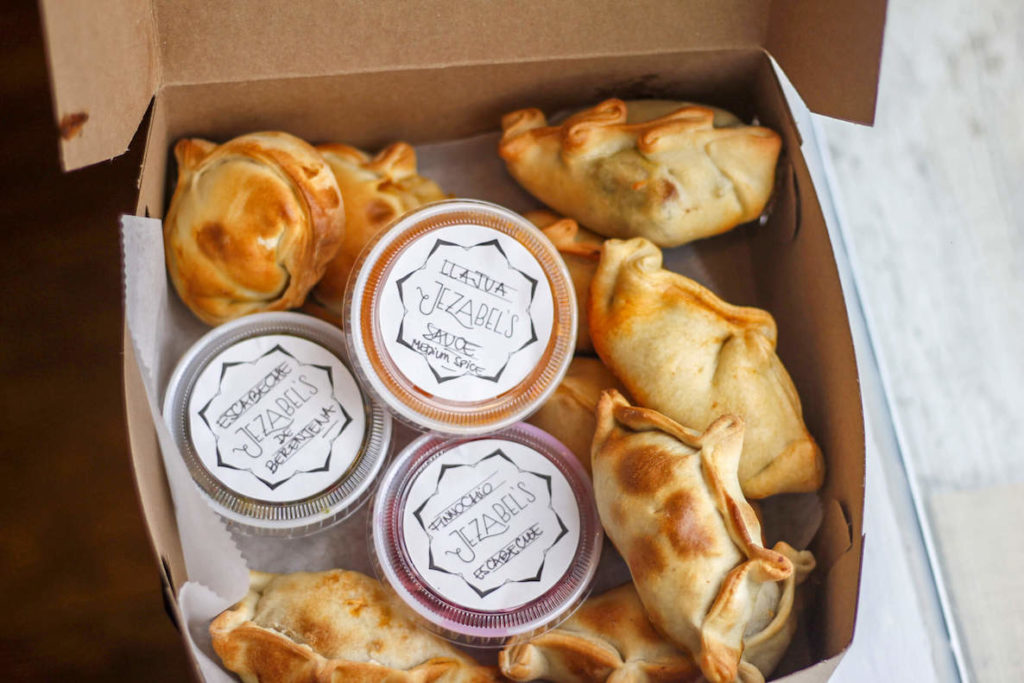
“Before the pandemic, we were mainly focused on sit-down service, breakfast and lunch with an Argentinian experience,” she says. “When the pandemic started, I realized we could be a one-stop-shop. The celebration cakes, the cheese, the fresh pasta—we started [selling all of that] during the pandemic.”
Where a restaurant might think of its kitchen and dining room as the heart of its offering and takeout, dinner kits, or packaged foods as pandemic-necessitated pivots, Careaga is prioritizing two of her signature items: alfajores and empanadas—for sale far beyond West 45th Street.
Careaga has not solved all the labor problems of restaurant business, but has made strong in-roads, starting employees over $10 per hour plus tips (the Philadelphia tipped minimum wage is $2.83), and connecting them with a financial advisor, not a standard employee benefit in the restaurant industry.
In December, she launched frozen, bake-at-home empanadas that come with instructions. “You still get these amazing, juicy empanadas just out of the oven—you are just baking them at home,” she says.
This strategy has helped a number of the city’s restaurants make it through the pandemic, as well. You can now make Dim Sum Garden soup dumplings—previously only available for sit down—at home, as well as baology potstickers and Dock Street pizza.

Jezabel’s delivers three days a week to Riverwards Produce and Rally coffee shop—and they plan to add more wholesale accounts and a farmers’ market stand by summer. They’re shipping their beloved alfajores to customers across the country—something Careaga wanted to do since 2018. Producing for regional and national distribution for retail, farmer’s markets and mail-order allows her to significantly grow sales.
And it’s already paying off: December 2020 was the best December in the 10-year history of her business. “We doubled [revenue] from December 2019,” Careaga says. Online sales, wholesale, and direct-to-consumer shipping, along with special “vegan-ish” (the ish is for butter) special event dinners for Christmas and New Years, including the Feast of the Seven Mushrooms, worked together to take Jezabel’s far beyond its pre-pandemic success.
“Those vegan-ish packages equal 50 percent of our regular week’s revenue. The return on effort is really high; I come up with the menus quickly and easily because it’s how I eat at my house.”
Careaga has not solved all the labor problems of restaurant business, but has made strong in-roads, starting employees over $10 per hour plus tips (the Philadelphia tipped minimum wage is $2.83), and connecting them with a financial advisor, not a standard employee benefit in the restaurant industry.
“With the financial advisor, we are looking into offering a package of benefits as well, such us health insurance, 401(k), maternity leave and paid vacations by the fourth quarter of 2021,” she says. “I have a great group of women, and at the end of the day, we have to protect the people that work for us.”
To ensure the business can continue to support them, Careaga is making her new revenue streams permanent, rather than counting the months (years?) until full reopening. She expects that even with the return of dining, the relationships she’s made with wholesale accounts and loyal mail-order fans outside of Philadelphia will continue to pay off. And she’ll continue to reach more (and new) customers where they already shop—at grocery stores, farmers’ markets and online.
“Some chefs want to go back to normal, but I’m sorry to tell you, buddy, there’s no normal,” she says. “Serving people at a table for me is going to be the luxury; it’s going to be the cherry on top of my cake. That’s the way that we’re going to treat dine-in experiences going forward.”



